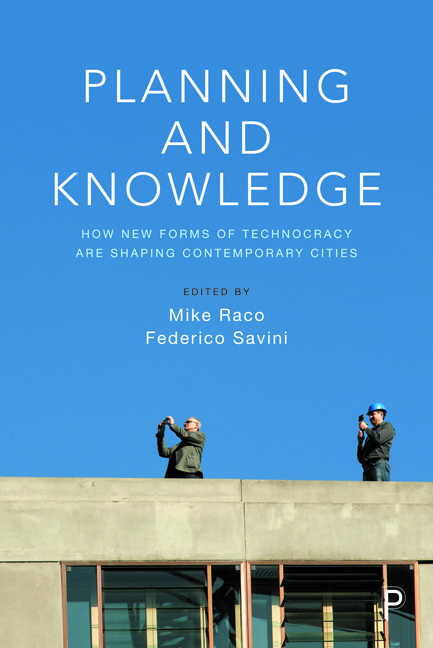Book contents
- Frontmatter
- Contents
- List of figures
- List of tables
- Notes on contributors
- Part I Conceptual framings of technocracy
- Part II Public planning and bureaucracies in contemporary urban development politics
- Part III Corporate knowledge and the land and property development sector
- Part IV Private consultants and the delivery of public policy
- Part V New constellations of actors and the management and governance of contemporary cities
- References
- Index
14 - The politics of new urban professions: the case ofurban development engineers
Published online by Cambridge University Press: 30 April 2022
- Frontmatter
- Contents
- List of figures
- List of tables
- Notes on contributors
- Part I Conceptual framings of technocracy
- Part II Public planning and bureaucracies in contemporary urban development politics
- Part III Corporate knowledge and the land and property development sector
- Part IV Private consultants and the delivery of public policy
- Part V New constellations of actors and the management and governance of contemporary cities
- References
- Index
Summary
Introduction
Against the backdrop of one the most difficult housingcrises in Stockholm's history, the City Councilrecently promised the delivery of 140,000 moredwellings before 2030 – the equivalent of building athird of the city in 15 years. Given the scale ofthese ambitions, it is interesting to ask whatconsiderations will guide these planneddevelopments, and who are those that will haveinfluence over how they are realised. Since about70– 80 per cent of all housing currently produced inthe city actually takes place on land owned andmanaged by the municipality itself (City ofStockholm, 2016), one set of key actors in thisprocess are those public officials who have as theirtask allocating the use of publicly owned land. InStockholm, this work primarily falls within theambit of the somewhat newfangled professionalcategory of ‘development engineers’ – which hasrisen to prominence as a key player in the Swedishurban development process in recent decades.
Based on these premises and the overarching topic ofthis book, this chapter will aim at exploring fourinterrelated questions regarding the role of thedevelopment engineers in the urban developmentprocess in Stockholm:
1. What is the influence of developmentengineers on the urban development process inStockholm?
2. What is this influenced premised upon?
3. What are the effects of this influence?
4. Could the influence of the developmentengineers be thought of as part of a ‘new urbantechnocracy’?
In answering these four questions we draw upon ourongoing qualitative research which investigatesrecent shifts in the balance of power betweenvarious professional groups that participate in theurban development process in the City of Stockholm.Our findings suggest that the rise to prominence ofthe professional category of development engineerhas led to the institutionalisation of a narrowlyconceived and short-termist economic optimisationrationality which to a large extent has come tosteer urban development considerations in the Cityof Stockholm. This rationality, which isinstitutionally solidified in legally bindingagreements between the city and property developers,comes to set a very rigid frame for any additionalconsiderations regarding, for example, socialjustice or balanced urban development that otherprofessional groups may try to introduce furtherdownstream in the urban development process.
- Type
- Chapter
- Information
- Planning and KnowledgeHow New Forms of Technocracy Are Shaping Contemporary Cities, pp. 181 - 196Publisher: Bristol University PressPrint publication year: 2019



